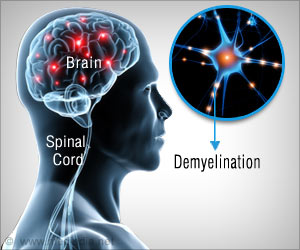Researchers used a new technique that allowed them to record 3-D footage of neural activity in the nematode Caenorhabditis elegans.

‘An instrument that captures calcium levels in brain cells as they communicate with one another was developed by the researchers. The level of calcium in each brain cell tells them how active that cell is in its communication with other cells in the nervous system.’





Much previous work related to neuron activity either focuses on small subregions of the brain or is based on observations of organisms that are unconscious or somehow limited in mobility, explained corresponding author Andrew Leifer, an associate research scholar in Princeton's Lewis-Sigler Institute for Integrative Genomics. Leifer said, "This system is exciting because it provides the most detailed picture yet of brain-wide neural activity with single-neuron resolution in the brain of an animal that is free to move around. Neuroscience is at the beginning of a transition towards larger-scale recordings of neural activity and towards studying animals under more natural conditions. This work helps push the field forward on both fronts."
Leifer further added, "A current focus in neuroscience is understanding how networks of neurons coordinate to produce behavior. The technology to record from numerous neurons as an animal goes about its normal activities, however, has been slow to develop. Neural networks are infinitesimal arrangements of chemical signals and electrical impulses that can include, as in humans, billions of cells."
Leifer said, "The simpler nervous system of C. elegans provided the researchers with a more manageable testing ground for their instrument. Yet, it also could reveal information about how neurons work together that applies to more complex organisms. For instance, the researchers were surprised by the number of neurons involved in the seemingly simple act of turning around. One reason we were successful was that we chose to work with a very simple organism. It would be immensely more difficult to perform whole-brain recordings in humans. The technology needed to perform similar recordings in humans is many years away. By studying how the brain works in a simple animal like the worm, however, we hope to gain insights into how collections of neurons work that are universal for all brains, even humans."
The researchers designed an instrument that captures calcium levels in brain cells as they communicate with one another. The level of calcium in each brain cell tells the researchers how active that cell is in its communication with other cells in the nervous system. The researchers induced the nemotodes' brain cells to generate a protein known as a calcium indicator that becomes fluorescent when it comes in contact with calcium.
Advertisement
Leifer said, "The entire setup drew from various disciplines and techniques, including physics, computer science and engineering. For instance, the real-time computer vision algorithms the researchers used to track the worms' brains are similar in principle to the ones used in robotics or in self-driving cars. Even more about the inner workings of the C. elegans nervous system remains to be extracted from the researchers' data over the next year. The team is currently working to flesh out the correlations between neural activity and behavior in general. These recordings are very large and we have only begun the process of carefully mining all of the data."
Advertisement
Source-Eurekalert











